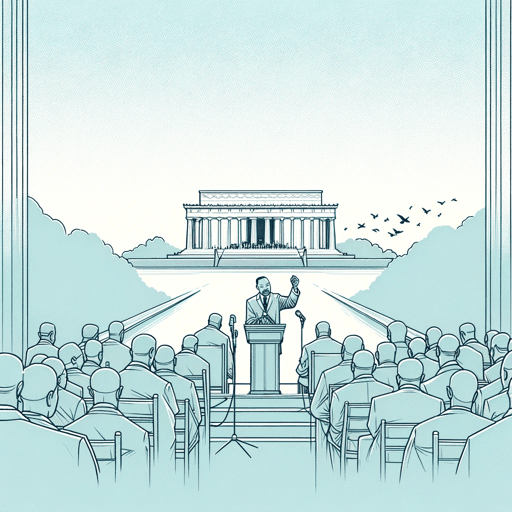28 pages • 56 minutes read
Martin Luther King Jr.I've Been to the Mountaintop
Nonfiction | Essay / Speech | Adult | Published in 1968A modern alternative to SparkNotes and CliffsNotes, SuperSummary offers high-quality Study Guides with detailed chapter summaries and analysis of major themes, characters, and more.
Essay Analysis
Analysis: “I’ve Been to The Mountaintop”
Martin Luther King Jr.’s final speech reflects many of the themes and rhetorical devices for which King’s oratory is famous. Through his use of Biblical allusions and his advocation of nonviolence and unity in the face of injustice, King once more urges his listeners to take up the cause of fighting for human rights and social justice for all Americans.
King’s implied audience is the local Black community of Memphis, but his message touches upon his preoccupations regarding racial and economic justice more broadly. King’s foremost aim is to place the suffering of the sanitation workers within the larger framework of the fight for civil rights and equality. His approach highlights the universality of their struggle, elevating it from a local issue to a symbol of broader systemic justice.
Consequently, King dedicates a significant portion of his speech to exploring historical events. King recognizes the transformative period of the late 1960s, acknowledging the growing national consciousness and the backlash this progress elicited. He speaks of the violent crackdowns faced by the Black protestors and their allies, emphasizing how the activists remained “masters in [their] nonviolent movement in disarming police forces” (Paragraph 19, emphasis added). King’s emphasis on the “nonviolent movement” to which he belongs reflects his commitment to Gandhi’s principles of nonviolent civil disobedience (See: Background).
Related Titles
By Martin Luther King Jr.






